The Twin Cities Oromo Community Takes The Streets of Minneapolis Demanding Justice For Hachalu Hundessa
The murder of the Oromo protest singer has set off protests in Ethiopia
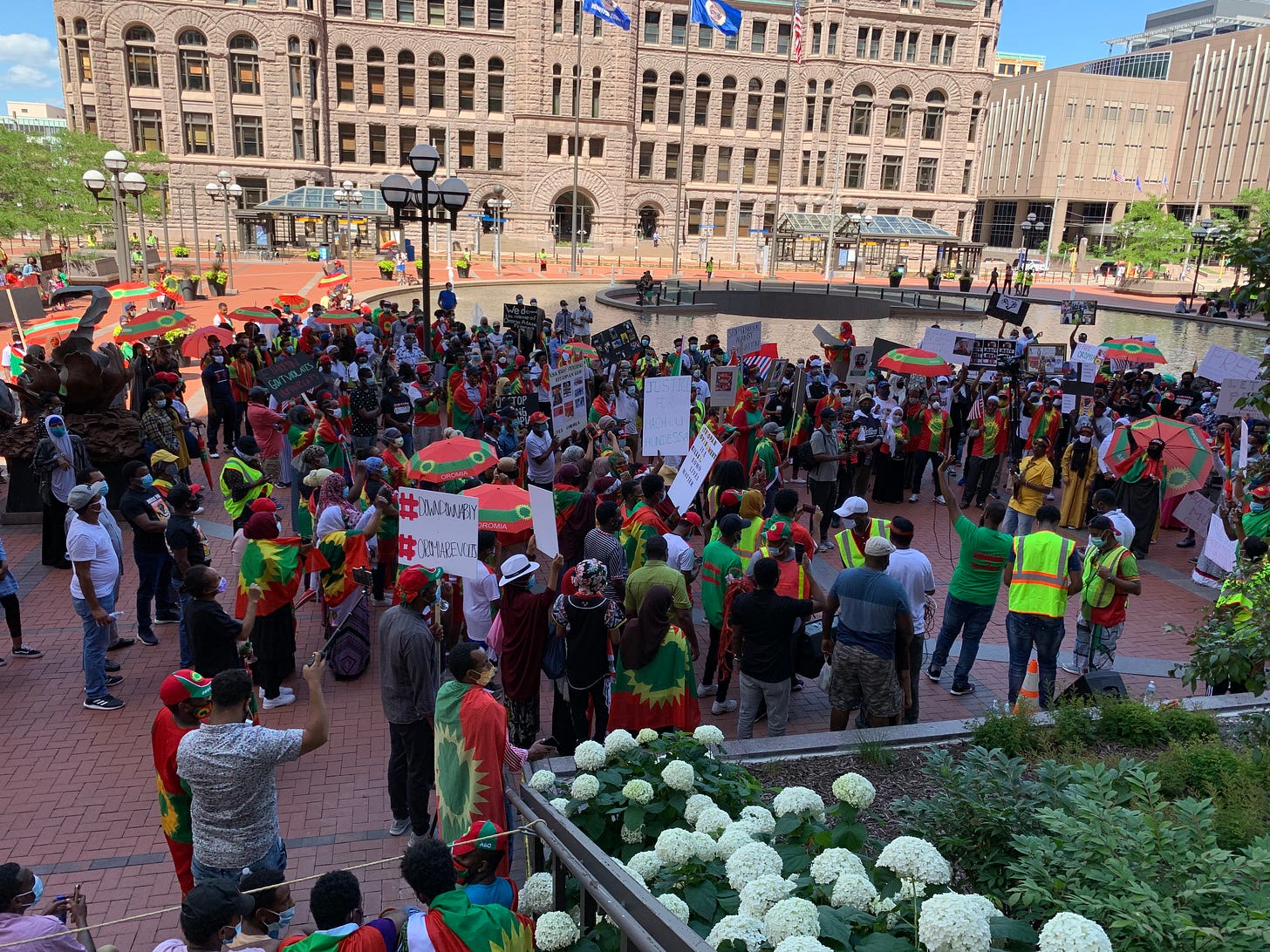
Members of the Twin Cities Oromo Community and their supporters gather at the Hennepin County Government Center on Friday, July 10th.
“He was more than an artist. He was an activist,” said Tesfaye Temuni, who had come to downtown Minneapolis to join hundreds of fellow Oromo-Minnesotans gathered for a multi-generational demonstration last Friday to mourn the death of the iconic Oromo protest musician Hachalu Hundessa.
It was the second major Oromo demonstration in the Twin Cities since Hundessa was shot and killed on June 29th in Addis Abba, the capital city of Ethiopia. Because of the pro-Oromo political content of his music, his death is widely believed to be a politically motivated assassination.
The Oromo people are the largest ethnic group in Ethiopia at 34% of the population, but have been culturally suppressed and historically excluded from positions of power in Ethiopian society. During the reign of Emperor Haile Selassie, their language and cultural customs were banned.

“We just want an Ethiopia where different groups can live in unity and harmony,” said Tesfaye Tumini.
“They forced us to not speak our own language. In the schools in Ethiopia they don’t teach in Oromo, they teach in Ahamaric,” said Bashanantu Mohammed, one of the march’s organizers.
Hundessa had soundtracked the protest movements that began in 2015 and eventually led to then-Prime Minister Hailemariam Desalegn’s resignation in 2018.
“He has songs where you think he’s singing about love, but he’s actually singing about everything that’s going on with the Oromo struggle,” said another of the march’s organizers, Iftuu Shato.
“They targeted him because he was speaking out. It was bigger than music,” said Ms Mohammed.
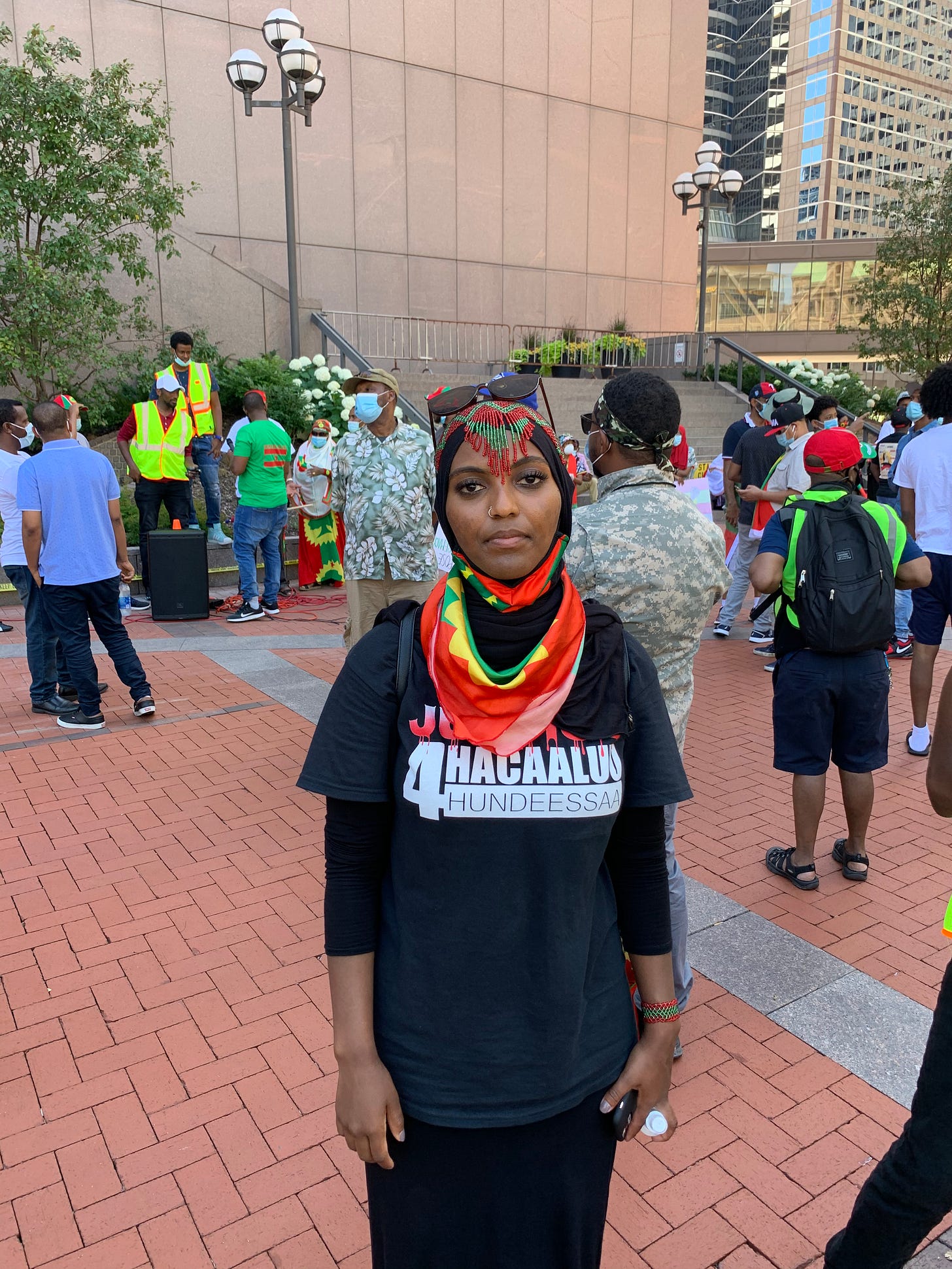
Iftuu Shato, an organizer of Friday’s rally.
Hachalu’s death has set off protests and violent state repression in Ethiopia, and triggered solidarity demonstrations around the world in cities with large Oromo populations. According to Al-Jazeera, 239 people have been killed in the protests in Ethiopia so far. Elections initially set for August have been indefinitely postponed due to the COVID-19 pandemic. A high-profile Oromo political opponent of Prime Minister Abiy Ahmed, the former Minneapolis resident Jawar Mohammed, has been jailed.
Prime Minister Abiyu Ahmed has restricted internet and phone access nationwide, making it difficult for the Oromo diaspora to truly know what’s going on with their families back home or send them remissions. “People here can’t even call their family members there. We can’t send news to them from here and they can’t send us news. A lot of people here are immigrants, and have a lot of family back home. Now we can’t send money to them,” said Shato.
The Twin Cities Oromo population was estimated at 40,000 in 2016 by the Wilder Foundation. That would make them the second largest East-African diaspora community in the Twin Cities behind the Somali community.

Bashanantu Mohammed, an organizer of Friday’s rally
Protesters marched with handmade signs and American and Oromia flags representing the the Oromo territory that encompasses much of eastern Ethiopia. They donned Red, Green and Yellow soccer jerseys and umbrellas as they marched through downtown Minneapolis and briefly stopped traffic on Interstate 35W.
Protesters called for justice for Hundessa, the freeing of Oromo political prisoners like Mr. Mohammed and for Ethiopian Prime Minister Abiy Ahmed –– who is of both Ahmara and Oromo heritage –– to step down.
Calls for Ahmed’s resignation is a far cry from when he was swept into office in 2018, becoming the first leader of Oromo heritage in the history of the country to hold the position. He was widely viewed as a unifier who would calm factional tension and bring democracy to a country that had been under decades of authoritarian rule. He was applauded for historic peace efforts with the neighboring nation of Eritrea, for which he was awarded the Nobel Peace Prize in 2019.
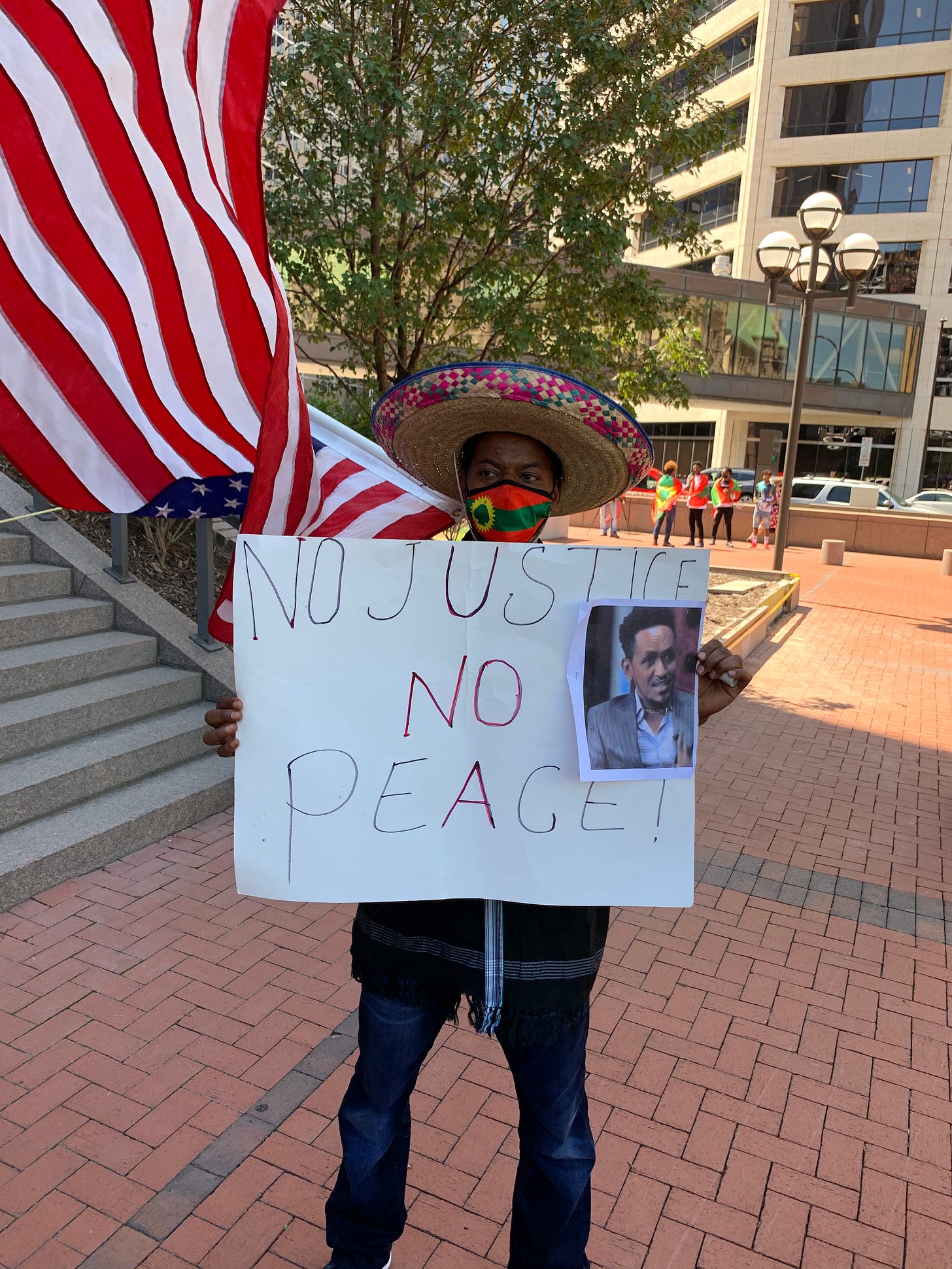
In 2018, Ahmed received a king’s greeting from a crowd of thousands when he visited the Target Center in Minneapolis as part of a North American tour. It was there that he spoke alongside Jawar Mohammed, the exile who had become a hugely popular media mogul and Oromo leader after founding the Oromia Media Network in Minneapolis.
It turned out to be a brief honeymoon. Despite the talk of unity and reconciliation, Ahmed’s government has been accused of extensive human rights abuses, as detailed in a May 29, 2020 human rights report on Ethiopia from Amnesty International that implicates Ahmed and Ethiopian security forces in extrajudicial executions, arbitrary arrests and other human rights violations.
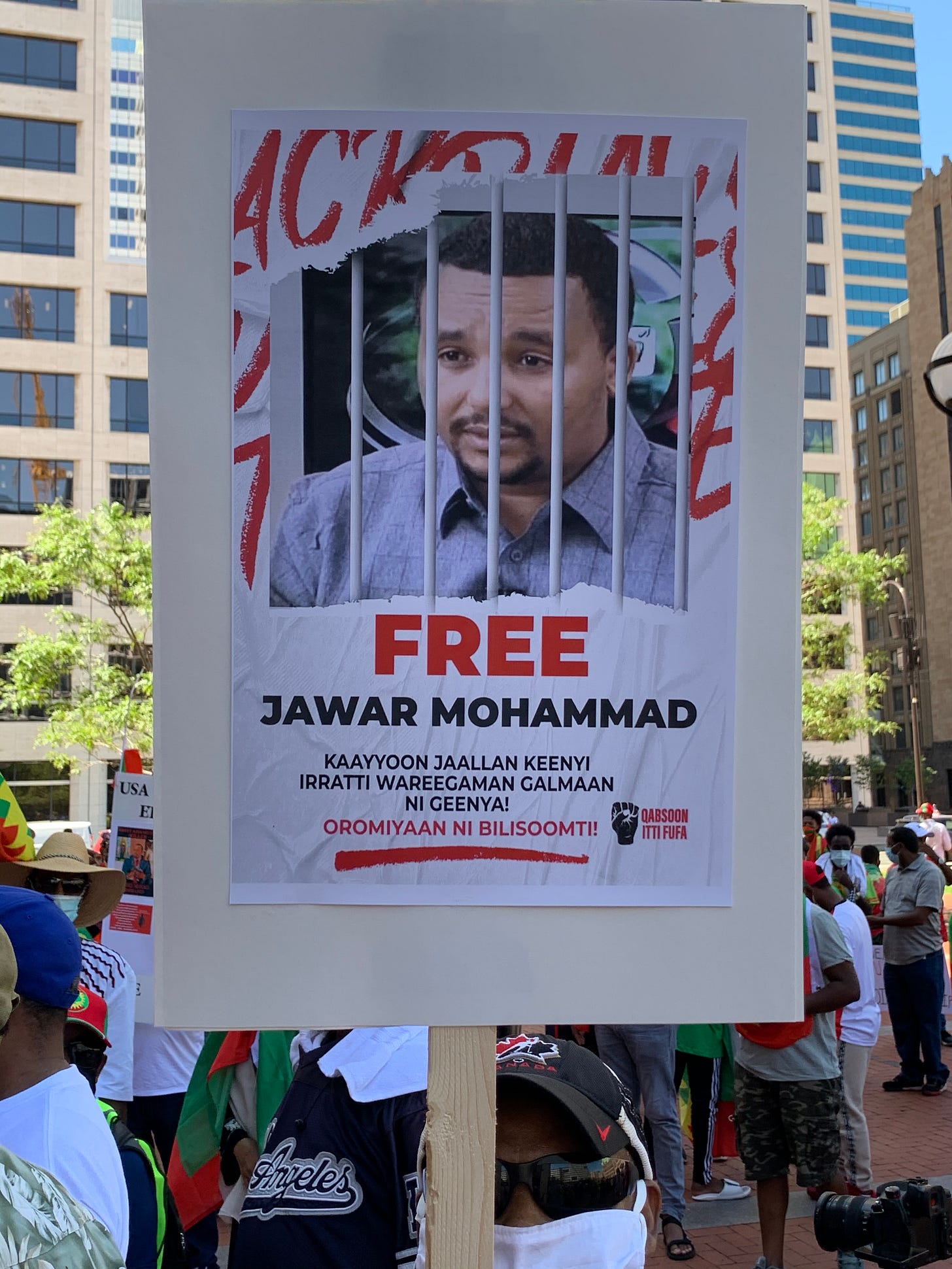
Mohammed had returned to the country as an ally of Ahmed, but in the intervening years has become one of Ahmed’s fiercest and most outspoken opponents. He has criticized the government's policies of promoting a national Ethiopian identity instead of encouraging the autonomy of ethnic groups like the Oromo, and accused Ahmed of cracking down on dissent.
“Oromos were always a threat to whoever was in power," Mr. Mohammad told NPR in 2018. "And to prevent Oromos from coming to power, to disempower them ... ridiculing them was very important, demoralizing them was very important." In turn, Mr. Mohammed has been called a terrorist and been accused of stoking violence and anti-government sentiment. Mr. Mohammed has been one of the most prominent boosters of Qeerroo, the militant Oromo-led Ethiopian youth movement.

Protesters pointed to an interview Hundessa gave to Mr. Mohammed’s media network days before his death, in which he doubled down on his commitment to pro-Oromo activism, as proof of the political nature of his death.
Last Tuesday, Mr. Mohammed was arrested and jailed after a standoff between his men and police had resulted in the death of one officer, according to Federal Police commissioner Endeshaw Tassew. Mohammed and his men were attempting to intercept Hundessa’s body and return it to Addis Abba.
Chants of “Free Jawar Mohammad,” echoed throughout the march on Friday.
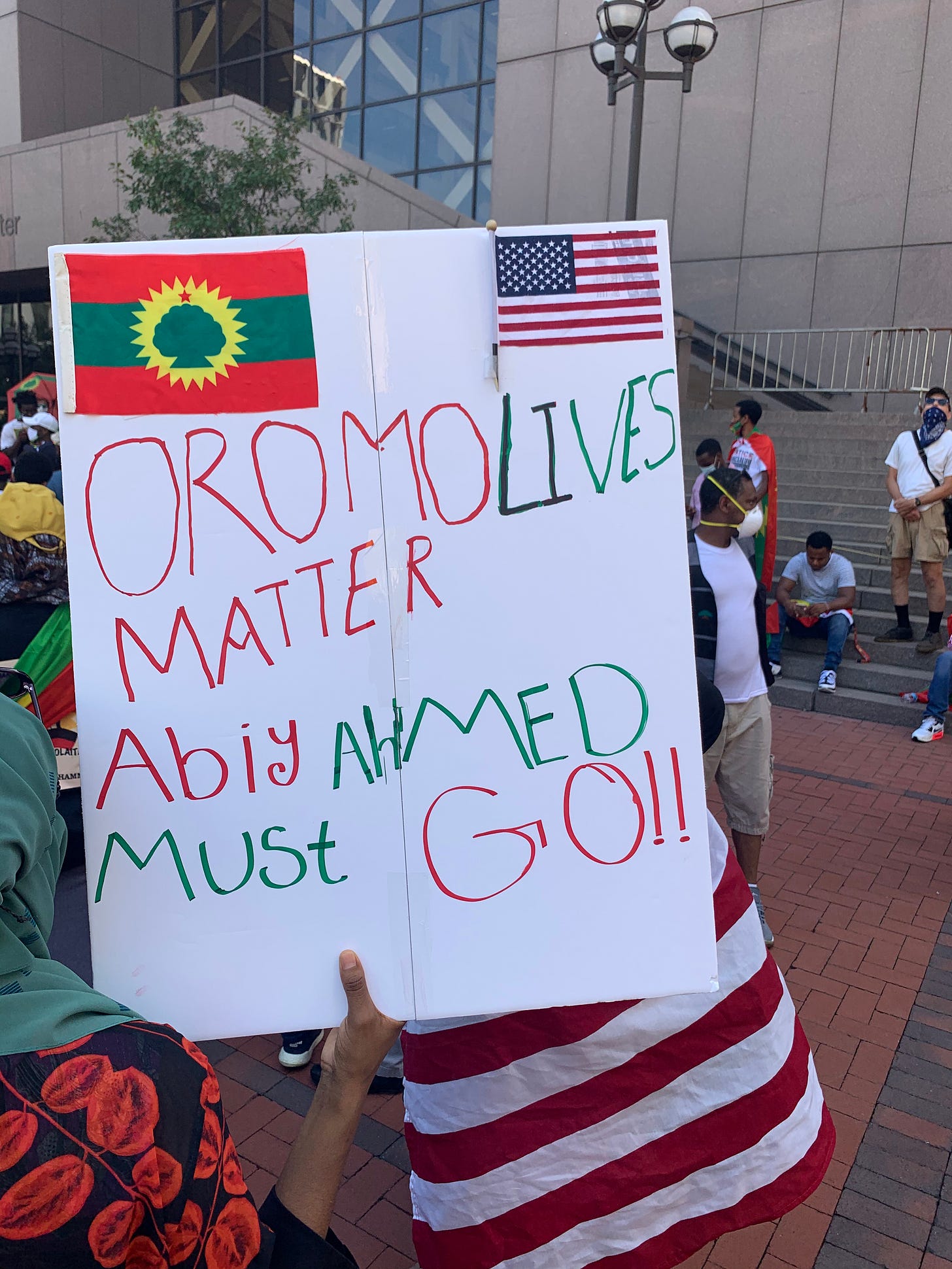
The historical persecution of the Oromo in Ethiopia led some protesters on Friday to draw parallels with the recent Black American-led protests that began in Minneapolis in the wake of the police killing George Floyd.
An organizer of the march named Abdulrahman Wako, led the crowd in chants of “Oromo Lives Matter, Black Lives Matter,” and “Oromo Liberation is Black Liberation.”
“Here it was a police officer that took George Floyd’s life. For Hachalu it was the government who took his life,” said Shato. “The only difference is that one was in Africa and one was in America.”
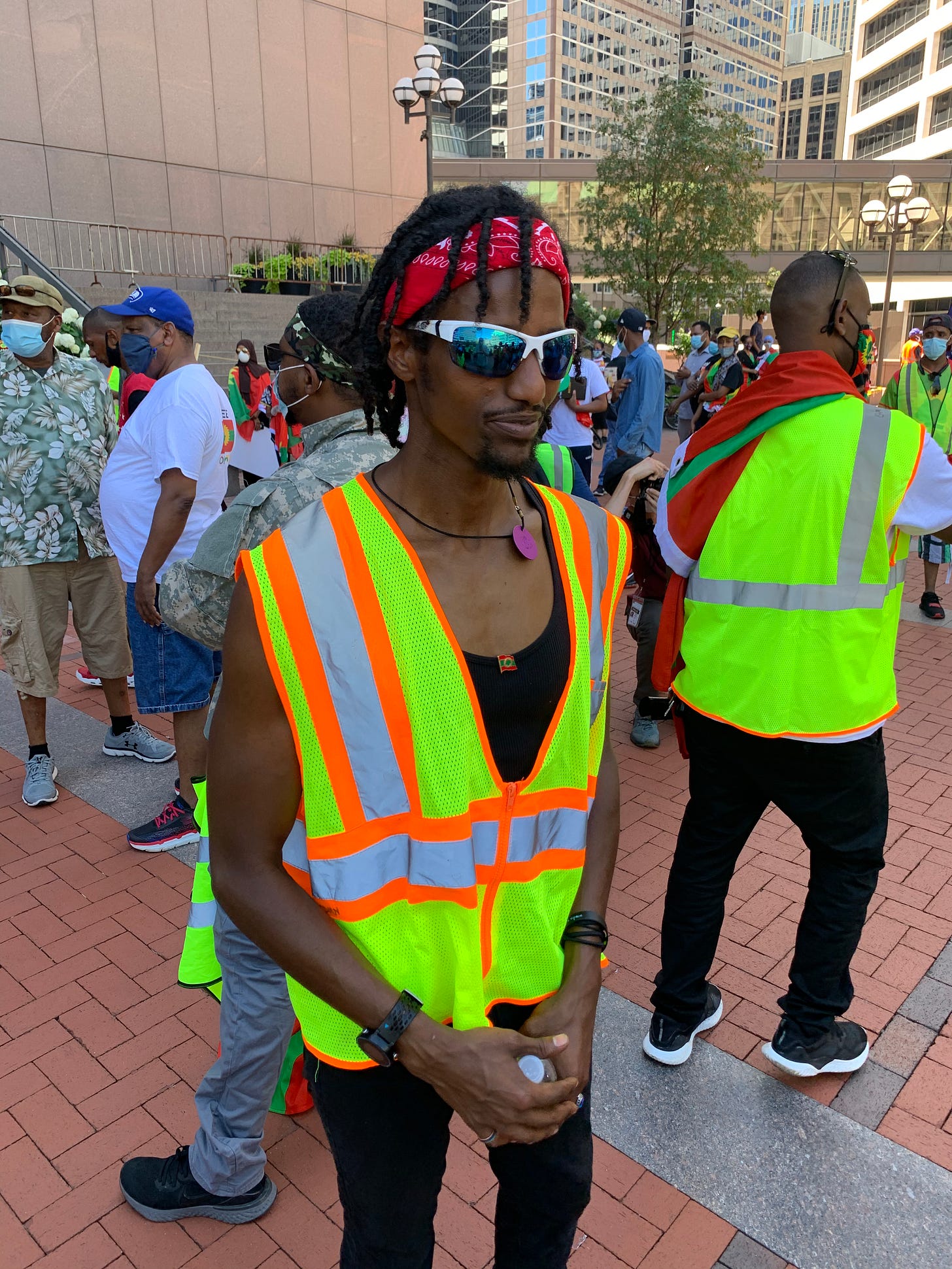
Abdulrahman Wako, an organizer of Friday’s rally
Professor Brian James Yates of Saint Joseph’s University, the author of the book, The Other Abyssinians: The Northern Oromo and the Creation of Modern Ethiopia, 1855-1913, wrote in February that, “In a lot of ways, there are parallels between Oromo and black Americans. Both are essential to their countries. There isn’t an America without people of color; there isn’t an Ethiopia without the Oromo.”
“We just want an Ethiopia where different groups can live in unity and harmony,” said Temuni, who wore a shirt with a portrait of Hundessa that read, “The Legacy of Haacaaluu Will Continue.”
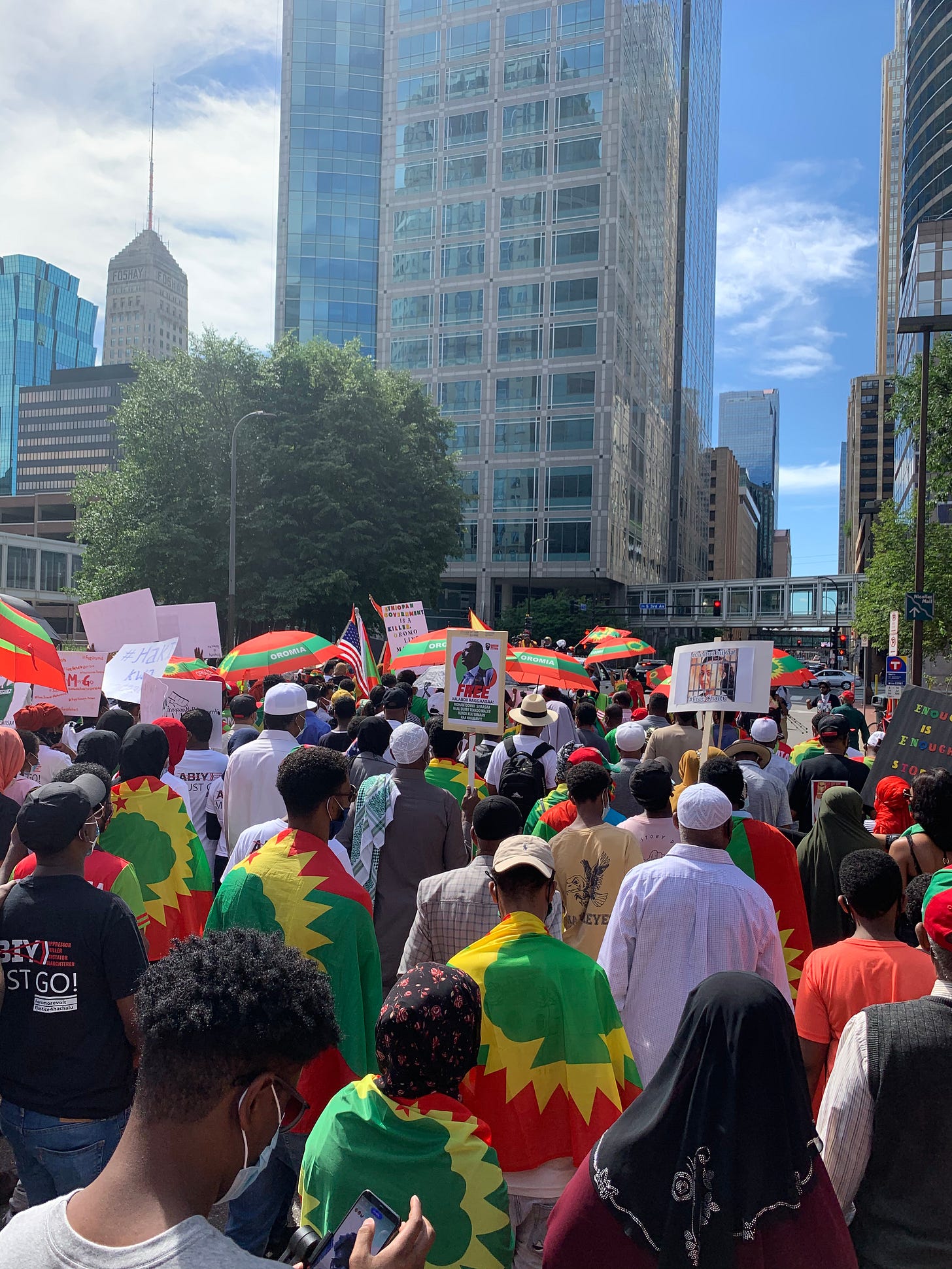
The same 2016 Wilder Foundation survey found that 88% of those surveyed believed that Minnesotans did not know about Oromo culture and history.
“We have our own language, our own culture and we want to be recognized in Ethiopia and Minnesota,” said Shato. “We have to support our families. They might not have a voice there, but we have a voice here.”


